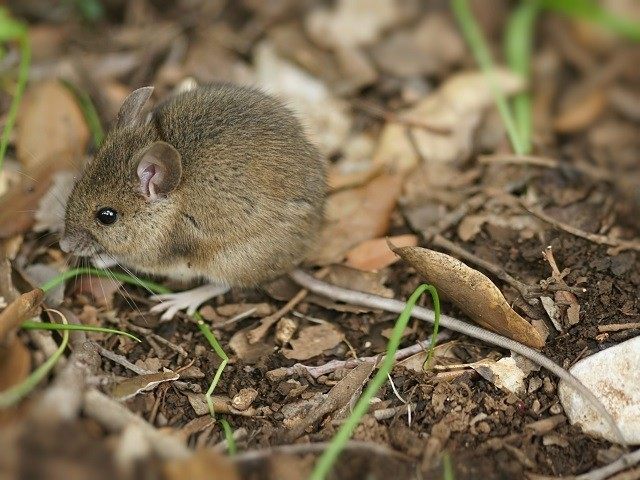A US professor has come up with a brilliant and original new theory as to why mankind is doomed by climate change: it’s because, unlike mice, humans are fatally handicapped by their ability to rationalize and reason.
No wait. You haven’t given him a chance to expound on his novel thesis yet. (H/T WUWT)
So here he is – his name is Raghu Murtugudden, executive director of the Chesapeake Bay Forecasting System at the University of Maryland Earth System Science Interdisciplinary Center (ESSIC) and a professor in the Department of Atmospheric and Ocean Science – setting out his theory at Live Science in an op ed entitled Human Nature May Seal The Planet’s Warming Fate.
It is based on an allegorical story he once read by motivational speaker Spencer Johnson about “two mice and two miniaturised men, both charged with seeking cheese within the same maze.”
Sniff and Scurry, the mice that run through the maze every day, remain forever prepared to seek cheese, even when discovering it in the same spot each day. Similarly, the little cheese-seeking men — Hem and Haw — who also discover the same cheese cache, eventually grow complacent and stop worrying about finding cheese. As often happens in nature, the cheese supply eventually begins to dwindle.
The mice can sense the coming change. Before it’s too late, they run through the maze and find new cheese. The men, however, fail to notice the subtle collapse in the cheese supply until it’s nearly too late. Haw, the more proactive of the little men, realizes that the cheese has all but disappeared and sets out in the maze to find new cheese. He learns a number of lessons along the way and does manage to both find new cheese and enjoy it as much as the old. Hem, however, remains unconvinced that the cheese will disappear. He also concludes that even if the cheese were to disappear, he wouldn’t like the new cheese anyway.
The moral of the story is that even creatures like mice — with their simple brains — are biologically tuned to notice and rapidly respond to change, whereas humans — the most evolved life form — are bogged down by their unique ability to rationalize and reason. Some members of the species even resort to wholesale denial that change is well underway, even when said change is caused by their own actions.
Do you get it now?
I’m afraid I’m not sure that I do. But then, I didn’t study environmental science or ecology or earth guilt or sustainability, so maybe I lack the relevant intellectual training.
According to Professor Murtugudden, though, the relevance of this parable to the issue of “climate change” is inescapable.
The parallels to humans and climate change are rather obvious. Humans are constantly seeking more and more comforts, even at the cost of irreversibly damaging the planet.
Less fortunate humans may, in fact, be more in tune with environmental changes and quicker to adapt, even when the changes result from overconsumption by the rich. Some humans are more sensitive to changes, even if they are late in responding to them. Others may resort to complete denial of the change itself or deny the need for action to avert change, especially when the thermostat is being discreetly adjusted.
Perhaps Professor Murtugudden is right here and I’m just a purblind fool. It seems to me, though, that there may possibly be at least a couple of flaws in his thesis.
Firstly, the premise. It appears to stand or fall on the credibility of a comparative behavioural study in which two mice in a maze were pitted against two miniaturized humans. Except, of course, we know that this study was not real. It was a work of imaginative fiction by a motivational speaker and self-help guru.
Secondly, its understanding of the principles of adaptation. Yes, in the story, it does indeed appear to be the case that mice are much more capable of adapting to change than humans. But this story, remember, was plucked out of thin air by a self-help guru and may bear little relation to observed reality.
Indeed, this was one of the main beefs that the late Julian Simon had with the doommongering theories of the environmental movement, from Malthus to Paul Ehrlich. All their assumptions about the disasters that awaited us in the near future as our result of our selfishness, greed, unwillingness to change our lifestyle and outrageous insistence on breeding seemed to depend on the notion that humans are incapable of adaptation.
For example, in his late Sixties bestseller The Population Bomb, Ehrlich postulated that population growth would soon lead to mass starvation (and a cancer epidemic, etc etc) as the human race outgrew its ability to feed itself. What actually happened, though, was Norman Borlaug’s “green revolution”, in which new strains of wheat were developed in laboratories enabling agricultural productivity in places like the Indian subcontinent to increase dramatically.
Really, all those people who bought Ehrlich’s book ought to have got their money back. But I’m not sure that any of them did – any more than I suspect that there’s any danger, any time soon, that Professor Murtugudden will lose tenure for postulating a thesis of such copper bottomed bilge. More likely, it will earn him a MacArthur Genius award.

COMMENTS
Please let us know if you're having issues with commenting.